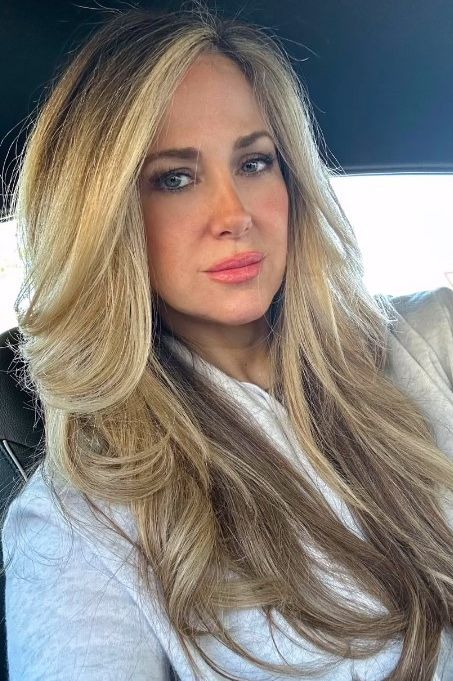The way you wear your hair for bed could be ruining it - but a quick fix could 'save' it now

Sleeping with your hair down could be causing unnecessary damage, an expert warned
Don't Miss
Most Read
Achieving silky and luscious hair becomes increasingly difficult during menopause because the transition period is characterised by a depletion of hormones.
With the right routine, however, the appearance of locks can be drastically enhanced.
Protecting hair while sleeping is crucial for maintaining its health and appearance, a beauty enthusiast recently shared.
Chelespell explained that loose hairstyles like ponytails can reduce friction. Using silk and satin pillows is also recommended.

Chelespell recommends using a pre-shampoo treatment
|"Three things are most important, after 50, our hair care game changes," she told viewers.
"Everything changes, including hair care, protecting when you shampoo, [so you should be] protecting when you blow dry, and protecting when you sleep.
“Sleep with your hair either up or on a silk pillowcase, you will get a lot less breakage and a lot less tangling.”
Silk pillowcases have emerged as valuable additions to hair care routines because their smooth surface helps prevent friction, which is a common cause of frizzy hair.
Additionally, the silk’s non-absorbent nature aids in preserving the hair’s natural oils, contributing to more manageable locks.
Another common way to prevent damage of this nature is to tie the hair up in any style that minimises contact between the tips and your pillow.
Use a pre-shampoo mask
“Most importantly use a pre-shampoo mask,” explained Chelespell, referring to protective treatments designed to add extra nourishment to dry and depleted locks before hair is washed.
LATEST DEVELOPMENTS

Wearing hair down at night could cause unnecessary damage
|GETTY / CHELESPELL
“Moisturise, moisturise, moisture,” she addressed, adding that this is particularly important for women in their 50s as their hair can become drier, coarser and thinner.
Along with a shift in oil production during menopause, the body creates fewer and fewer melanocytes, the substance that contributes to the colour of our hair.
To combat these symptoms, Chelespell recommended:: “Use a heat-protectant when you blow-dry your hair, it will save your hair.
“Hair is most fragile when it’s wet so you want to make sure you do not brush it when it’s wet. Comb only."










